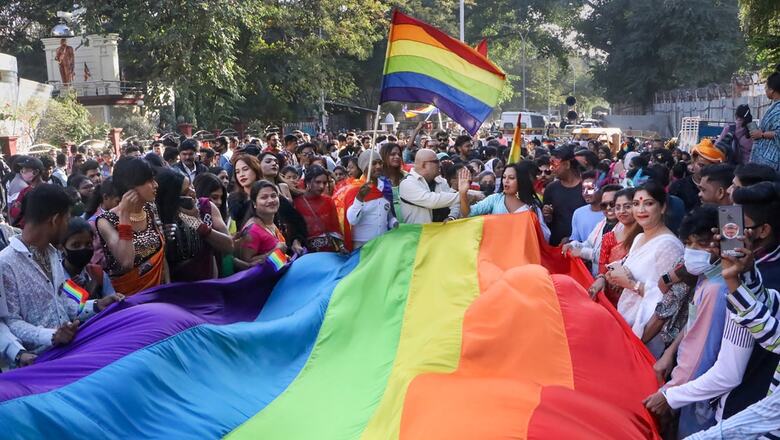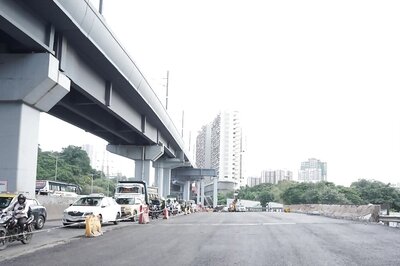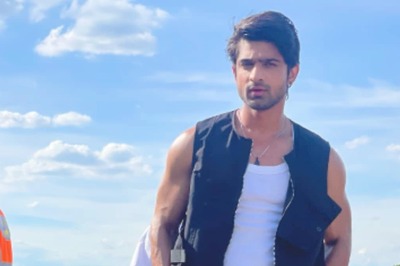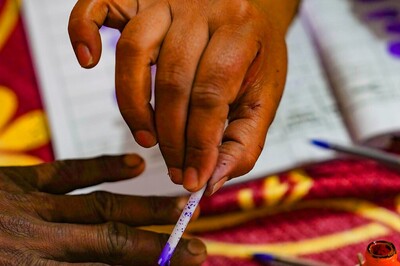
views
In the complex tapestry of human rights, few issues stir as much passion and controversy as the struggle for lesbian, gay, bisexual and trans (LGBT) rights in various communities. For many, this is a battle for equality, dignity, and freedom — cornerstones of modern democratic societies. Yet, within the folds of one of the world’s most practised religions — Islam — the conversation on LGBT rights has often been shrouded in shadows, evoking intense debate and, at times, division. It is important to shed light on the often misunderstood and misrepresented stance of Islam concerning LGBT individuals. While religious doctrine and tradition have long influenced societal attitudes, they are not static, and interpretations have evolved over time.
In the contemporary landscape, the discussion surrounding LGBT rights in Islam has become more pressing than ever. Across the globe, activists, scholars, and everyday Muslims are challenging the status quo, questioning deeply ingrained beliefs, and seeking to reconcile faith with the principles of equality and inclusivity. The conversation about LGBT rights in Islam is not just about policy; it is about human lives, their struggles, aspirations, and the enduring quest for acceptance. It is about fostering dialogue, bridging divides, and recognising the shared humanity that binds us all.
Irshad Manji is a Ugandan-born Canadian educator, author, and activist. She is known for her critical examination of Islam and her advocacy for reform within the faith. Manji has written several books, including ‘The Trouble with Islam Today’ (2004) and ‘Allah, Liberty and Love’ (2011). She is also the founder of the award-winning Moral Courage Project at the University of Southern California.
Manji’s work focuses on promoting dialogue, tolerance, and diversity within religious and cultural contexts. Her book ‘Allah, Liberty and Love’, published in 2011, explores the intersection of Islam, personal freedom, and love. She challenges traditional interpretations of Islam and encourages a more inclusive and progressive understanding of the faith.
Manji argues that Muslims can reconcile their religious beliefs with the ideals of individual liberty and human rights. She promotes the idea that Islam can be a force for positive change and encourages Muslims to engage in critical thinking and reinterpretation of religious texts to align with modern values. The book also delves into Manji’s personal journey as a Muslim woman and her struggles with identity, faith, and cultural expectations. She shares her experiences and insights, aiming to spark conversations and encourage dialogue within the Muslim community and beyond.
Daayiee Abdullah is an imam and religious leader who has gained recognition as an openly gay imam. He is known for his advocacy for LGBT rights within the Muslim community and for his work in creating inclusive spaces for LGBT Muslims, called ‘affirming mosques’. Abdullah is the imam and religious director of Masjid Nur Al-Islah, also known as the ‘Mosque for Enlightenment and Reformation’ or ‘Light of Reform Mosque’. In 2016, he was interviewed by Associate Editor of The Times of India, wherein he revealed there were eight openly gay imams in the world. Abdullah has performed same-sex Muslim marriages and has been actively involved in promoting dialogue and understanding between different communities. Abdullah’s work has been both praised and criticised within the Muslim community and has sparked discussions about the intersection of Islam and LGBT rights.
LGBT Muslims struggle to reconcile their faith with their sexuality, often experiencing discrimination and rejection within their religious communities. The growth of “affirming mosques,” which are inclusive places of worship, provide a haven for LGBT individuals and there is a dire need for these in the Indian subcontinent. These mosques are typically led by progressive imams supportive of LGBT rights. Islam historically, before it was ossified by the mullahs and modern-day reformist movements of radical political Islam, was free and flexible and emphasised the significance of having a religious community where individuals can authentically express themselves.
However, today it must be acknowledged that due to the rise of extremist groups such as ISIS who threw gays off rooftops in the territories they conquered and filmed the executions, and the Wahhabi interpretations exported by petrodollar-funded Sunni preachers from Saudi Arabi, individuals and affirming mosques have to deal with unsurmountable challenges. They particularly face criticism from conservative voices within the broader Muslim community, while underscoring the global nature of the struggle for LGBT acceptance within Islam.
The Ibn Rushd-Goethe Mosque in Berlin is a self-described liberal mosque that was inaugurated in June 2017. It is named after the medieval Islamic philosopher Ibn Rushd (also known as Averroes) and the German writer Johann Wolfgang von Goethe. The mosque’s director and Imam, Seyran Ates, aims to provide an inclusive and progressive space for Muslims of all backgrounds and orientations. The mosque has garnered attention for its progressive stance on issues such as women’s rights, LGBT inclusion, and interfaith dialogue. It has attracted a diverse congregation and has been known to have women imams lead prayers, support same-sex marriages, and promote a more inclusive interpretation of Islam.
The Ibn Rushd-Goethe Mosque has been both praised for its efforts to reform traditional practices within Islam and criticised by more conservative elements within the Muslim community. It has also faced opposition from some conservative religious authorities, including receiving a fatwa (religious ruling) against it from Egypt. Despite the challenges, the mosque has continued to operate and has become a symbol of the ongoing discussions and debates within Islam regarding issues of modernity, gender equality, and LGBT rights.
LGBT rights in Islam is a complex and often controversial topic. Traditional Islamic teachings view homosexual acts as sinful and forbidden. Islamic jurisprudence historically prescribed punishments such as flogging, stoning, and even death penalty for homosexual acts. The condemnation of homosexuality in Islam is often based on the story of the cities of Sodom and Gomorrah, which were destroyed by God due to their inhabitants’ sinful behaviour, including homosexuality. This story is found in the Quran and is also mentioned in the hadiths (sayings and actions attributed to the Prophet Muhammad). These sources are considered authoritative in Islamic teachings.
However, it is important to note that there is diversity of opinion within the Muslim community regarding LGBT rights. Some progressive Muslim scholars argue for a reinterpretation of Islamic teachings, advocating for more inclusive and accepting attitudes towards homosexuality. They highlight principles of compassion, justice, and respect for human dignity as core values of Islam that should guide attitudes towards LGBT individuals. In some Muslim-majority countries, there is a wide range of legal and social attitudes towards homosexuality. While it remains illegal and punishable in some countries, there are others where same-sex relationships are not explicitly criminalised, especially in a country as diverse and liberally democratic as India. Plus, there are 10 Muslim-majority countries where homosexuality is legal, such as Tunisia, Albania, Kyrgyzstan, Bosnia-Herzegovina, Kosovo, Lebanon, Turkey, Mali, Jordan, and Indonesia.
It is also worth mentioning that the treatment of LGBT individuals varies widely within Muslim communities around the world. LGBT Muslims often face social stigma, discrimination, and marginalisation, and their experiences may vary depending on cultural, social, and political contexts; but their struggle is gaining more freedom in the 21st century than ever before.
The author is a writer and an educationist from Srinagar, Kashmir. Views expressed in the above piece are personal and solely that of the author. They do not necessarily reflect News18’s views.



















Comments
0 comment